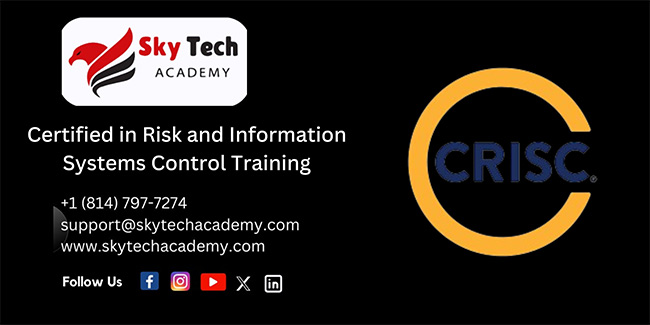Certified in Risk and Information Systems Control (CRISC)
The Certified in Risk and Information Systems Control (CRISC) training is designed for IT and risk professionals seeking to enhance their expertise in enterprise risk management, information security, and governance. Offered by ISACA, CRISC certification validates your ability to identify, assess, and mitigate IT and business risks while implementing robust control measures. This training covers four key domains: Governance, IT Risk Assessment, Risk Response and Reporting, and Information Technology and Security. Participants will learn to develop risk-based strategies, establish effective control frameworks, and ensure business continuity.






